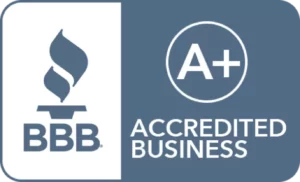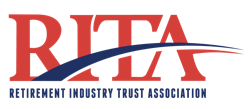A Self-Directed IRA is a type of traditional IRA structure that allows you (the IRA holder) to gain more control over your retirement funds. Some investors don’t know that self-directed IRAs are not all the same.
Few investors know that the IRS allows the use of your IRA funds to make alternate investments such as real estate, precious metals, tax liens, private business and much more tax-free and penalty-free!
The Traditional IRA in a Nutshell
An individual retirement account, or IRA, is a tax-favored personal savings arrangement that allows you to set aside money for retirement. There are several different types of IRAs which you can set up with a bank, insurance company, or other financial institution.
The original IRA is often referred to as a traditional IRA. You may be able to deduct some or all of your contributions to a traditional IRA. For 2023, you can contribute up to $6,500 annually, or $7,500 if over the age of fifty. Distributions from a traditional IRA are fully or partially taxable in the year of distribution. If you made only deductible contributions, distributions are fully taxable.
Distributions made prior to age fifty-nine and a half may be subject to a ten percent additional tax. Unfortunately, you cannot keep retirement funds in your account indefinitely. You generally have to start taking withdrawals from your IRA or retirement plan account when you reach age seventy and a half. This is often referred to as a “required minimum distribution,” or RMD. A Roth IRA does not require withdrawals until after the death of the owner.
Your RMD is the minimum amount you must withdraw from your account each year. You can withdraw more than the minimum required amount and your withdrawals will be included in your taxable income except for any part that was taxed before (your basis) or that can be received tax free (such as qualified distributions from designated Roth accounts).
Contributions to all types of IRAs can be made only from income that the IRS determines to be “earned.” You do not have to work for someone else to have taxable earned income; you can also work for yourself. Compensation from either type of employment would be considered earned income, but the complete definition is a bit broader. The IRS defines the following types of income as taxable:
- wages, salaries, and tips
- union strike benefits
- long-term disability benefits received prior to minimum retirement age
- net earnings from self-employment
However, these are examples of income that is not considered earned:
- pay received for work while an inmate in a penal institution
- interest and dividends
- retirement income
- social security
- unemployment benefits
- alimony
- child support
History of the Self-Directed IRA
The 2008 financial crisis resulted in many Americans asking about alternative investment options for their retirement accounts. It is believed that the financial crisis cost retirees almost 25 percent of their retirement assets, and many are still trying to get back to where they were prior to the crisis. The sudden and steep stock-market fall coupled with lack of faith in Wall Street and the global financial markets caused many Americans to seek a more balanced and diversified retirement portfolio. With this came a sharp increase in the number of Americans looking at a Self-Directed IRA as the vehicle for attaining a level of account diversification by making alternative-asset investments, such as real estate, precious metals, tax liens, notes, and private businesses.
Actually, the Internal Revenue Code (IRC) does not describe what a Self-Directed IRA can invest in, only what it cannot invest in. IRC Sections 408 and 4975 prohibit disqualified persons from engaging in certain type of transactions. The purpose of these rules is to encourage the use of IRAs for accumulation of retirement savings and to prohibit those in control of IRAs from taking advantage of the tax benefits for their personal account.
Essentially there are three different types of Self-Directed IRAs, each providing the IRA holder with different levels of investment and control options:
- Traditional financial institution Self-Directed IRA
- Custodian-controlled Self-Directed IRA without Checkbook Control
- Self-Directed IRA LLC with Checkbook Control
There are essentially three types of Self-Directed IRAs:
1. Financial Institution Offered Self-Directed IRA
The most popular Self-Directed IRA account offered is the financial institution Self-Directed IRA. The reason that this type of Self-Directed IRA is so popular is because they are generally offered by the major financial institutions, such as Bank of America, Wells Fargo, Fidelity, Vanguard, etc. With this type of Self-Directed IRA, the IRA holder is generally able to only make IRA investments offered by the financial institution which typically only includes financial related investments, such as stock, mutual funds, and ETFs. Even though these types of IRA accounts are called “Self-Directed IRA” accounts, they are very limited in their investment scope and do not allow IRA investors to make any non-traditional investments, such as real estate.
Why do the financial institutions limit the investment options available?
A financial institution that offers IRA accounts is not required to offer its IRA investors with the opportunity to make all allowable types of IRA investments. For example, even though real estate is an IRS approved investment, an IRA custodian is not required or obligated to offer that investment option. Accordingly, most financial institutions offering IRA accounts will restrict the IRA investment option to financial products offered by the financial institution. The reason behind this is quite clear – a financial institution earns fees from the sale of financial products, not by allowing its clients to pull money out of the IRA account to buy real estate from a third-party.
2. Custodian Controlled Self-Directed IRA
IRA Financial Trust Company offers Self-Directed IRA investors full IRA custodial services for traditional and alternative asset investments, such as real estate. All IRA funds will be held with Capital One Bank, providing FDIC protection up to $250,000, before the client directs the funds for investment.
Until a 1996 court case, the custodian controlled Self-Directed IRA was the only way one was able to use IRA funds to make a non-traditional investment, such as real estate. In essence, with a custodian controlled Self-Directed IRA, every step an IRA holder wanted to make had to be carried out through a custodian such as IRA Financial Trust Company. In other words, the IRA holder directs the IRA custodian, IRA Financial Trust, to make the investment directly. All transaction related activity, such as paying expenses or depositing checks, must be paid by the IRA custodian.
3. “Checkbook Control” Self-Directed IRA LLC
IRA Financial Trust is proud to offer Checkbook IRA custodial services along with its full service IRA administration services all for one low price without any transaction or asset valuation fees. IRA Financial Trust Company is one of the few full-service IRA custodians who specialize in establishing Checkbook Control IRA LLC accounts.
IRA Financial Trust Company is a regulated non-banking financial institution that is made up of retirement tax specialists committed to helping you make Self-Directed retirement investments quickly while minimizing annual fees. IRA Financial Trust Company was founded by tax attorneys who worked at some of the largest law form in the world, including White & Case LLP and Dewey and LeBoeuf LLP and have helped over 12,000 clients self-direct their retirement funds through their ownership in the IRA Financial Group LLC. Our experience working with Checkbook Control IRA LLC structures is unmatched in the industry.
In the 1996 case of Swanson vs. Commissioner, 106 T.C. 76 (1996), the tax court gave its blessing to a new type of Self-Directed IRA structure — the Self-Directed IRA LLC also known as the Checkbook IRA— that is much simpler than investing through a regular custodial controlled Self-Directed IRA account
With a “Checkbook Control” Self-Directed IRA, the IRA holder (you) will have total control over your IRA funds and you will no longer have to get each investment approved by the IRA custodian of your account like in a custodian controlled Self-Directed IRA. Instead, with IRA Financial Trust Company’s Checkbook Control IRA account, all decisions are truly yours. When you find an investment that you want to make with your IRA funds, simply write a check or wire the funds straight from your Self-Directed IRA LLC bank account to make the investment.
Under the Checkbook IRA format, the Checkbook Control IRA is set up as a Self-Directed account with IRA Financial Trust that’s capitalized by funds rolled over from your current retirement account. The funds are deposited with Capital One Bank. Then, a Limited Liability Company (“LLC”) is created in which your new IRA purchases all the membership units/interests. Now, your money is held in an LLC and you are ready to invest at your discretion. A “Checkbook Control” Self-Directed IRA allows you to eliminate the delays, IRA custodian transaction fees, and IRA account annual valuation fees, enabling you to act quickly when the right investment opportunity presents itself.
With a traditional Self-Directed IRA, when you find an investment that you want to make with your IRA funds, simply write a check or wire the funds straight from your Self-Directed IRA LLC bank account to make the investment. The Self-Directed IRA allows you to eliminate the delays associated with an IRA custodian, enabling you to act quickly when the right investment opportunity presents itself.
Get in Touch
Do you still have questions about the traditional IRA and how to turn it into a self-directed individual retirement account? Get in touch with IRA Financial Trust directly at 800-472-1043. We will assist you with all of your questions, and help you establish a self-directed IRA.











